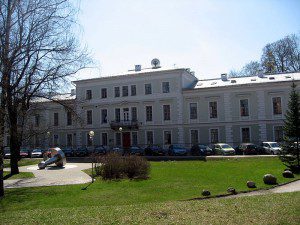Originally posted December 22, 2004.
Left Behind, pp. 68-71
Buck Williams’ role as a journalist provides a useful device for long stretches of exposition without departing from the protagonist’s point of view (one of many tropes borrowed from Sydney Watson’s earlier rapture novels).
Jerry Jenkins’ clumsy employment of this device often results in strange passages like this one, in which Buck reviews his notes from an interview with the Magical Jew, Chaim Rosenzweig, wherein the miracleworker discusses an obscure Romanian politician.
It’s a bit odd for Buck to be reviewing this particular section of this particular interview just now. He just received an e-mail from his boss telling him he’s in charge of investigating and reporting on the worldwide mass disappearances. You and I might consider that to be his most urgent priority. The disappearances, after all, are a top candidate for Biggest News Story of All Time.

But neither Buck nor his boss considers this the most important story. The editor is more worried about a pair of Jewish conferences gathering soon in New York City. (Jews in New York — now that’s news.) Steve Plank is convinced those wily Jews are Up To Something and no story is more vital than prying into the secrets of their international conspiracies.
(Inexplicably, the planning of these conferences isn’t even slightly delayed by the mass disappearances and the resulting shutdown of air travel. Even as our hero goes to great lengths and great expense to charter a private plane to NYC, everyone else — Jewish nationalists, Romanian diplomats, members of the Parliament of World Religions — seems able to continue their travel plans to that city without interruption or delay.)
Buck’s own obsession is with the Romanian, mentioned briefly at the end of his boss’s long rant about the Jews. This was the literary equivalent of Roger Ebert’s “Unmotivated Close-up” rule, so Buck astutely realizes that any person thus singled out must be more significant than he at first seems.
Add to this that the man’s name is Nicolae Carpathia. It’s almost impossible to read that without hearing a swell of ominous organ music on the soundtrack. (Frau … Blucher!)
Nicolae Carpathia is, in fact, the Antichrist. This has been made explicitly obvious to the reader, but it’s something that Buck could not yet have any way of knowing. Perhaps this shows his vaunted journalistic instincts at work. Others might see the vanishing of billions of people as the bigger story, but the rise of the Antichrist to worldwide dominion is just as newsworthy — and Buck is onto that story long before anyone else.
By fortuitous coincidence, Buck had already learned a great deal about Carpathia. It turns out that in his interview with Rosenzweig, the doctor had gone off on a tangent about one of his hobbies. When he’s not busy inventing miracle formulas that make the deserts bloom, Rosenzweig apparently likes to study “the lower house of Romanian government.” Who doesn’t?
“Don’t feel bad that you don’t know” such things, Rosenzweig tells Buck:
“… even though you are an international journalist. This is something only Romanians and amateur political scientists like me know. That is something I like to study.”
We’ll get back to Carpathia and what Rosenzweig had to say about him soon, but I need to post this now so I can get back to one of my favorite hobbies. I like to read up on Estonian appellate courts.












